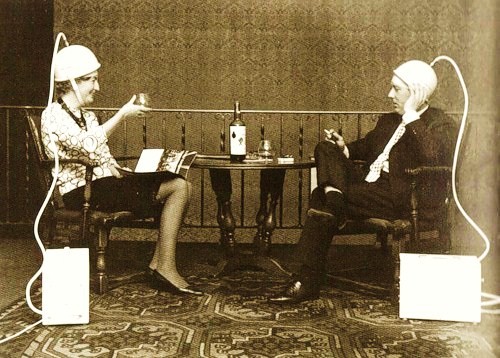I really liked the first Freakonomics–I think I actually reviewed it–but I’m a lot more circumspect now about that class of behavioral-economics books. Science tomes that are that narrative-driven give me pause. Isn’t there a temptation to subvert a false narrative with another one? And all the while the readers are flattered because they, unlike the masses, are too smart too accept that status quo. Except that maybe what they’re accepting, supported by one study or another, isn’t true, either. Not saying that Stephen Dubner or Steven Levitt would ever knowingly do that, but even deeply thoughtful people can fall into these traps. Dubner, one half of the very bright duo, just did an Ask Me Anything at Reddit. A few exchanges follow.
__________________________
Question:
I’m curious if even you guys find it difficult to follow your own advice? Despite all you know about saving & psychology, what financial concepts do you struggle most with?
Stephen Dubner:
Great question — and the answer is yes! One point we try to make repeatedly in the new book is that we’ve all got our own set of biases, priors, and preconceptions, and a big challenge in modern life is working through/around them. As Danny Kahneman wrote in Thinking, Fast and Slow: “[W]e can be blind to the obvious, and we are also blind to our blindness.” I personally don’t have much trouble in the financial realm — I am weirdly disciplined and conservative there — but certainly in other realms I do not always think like a Freak.
__________________________
Question:
I’ve often made the argument that if I could require every living person to complete just one college-level course, that course would be Behavioral Economics. If you could make the same requirement, what course would you select and why?
Stephen Dubner:
Well, I hate to be unoriginal but I might give your answer too. (Of course I would say that!) But behavioral economics is what got me doing the work I’m doing today. It was the writing of Kahneman and Tversky, and then Thaler, that got me excited for the first time about economics. Why? Because it blended the empiricism of economics with the feel and insights of psychology. I think that kind of interdisciplinary marriage is hugely valuable. And even though Levitt never thought of himself as a “behavioral economist,” one reason I was so attracted to his work is that it married economics with, among other areas, crime, politics, and so on.
__________________________
Question:
What are you working on now? Any new mind blowing statistics that you would like to share with us.
Stephen Dubner:
Believe it or not, our next major book will/may be the Freakonomics of Golf. Levitt is a longtime golf addict — when he was a kid, he really thought he’d be a touring pro — and in the last few years he’s gotten me addicted too. Our philosophy is to try to turn what you love into what you do for a living, so naturally it would follow that we’d try to pull off a golf book. We are working on it with Luke Donald, he of the beautiful swing and former world No. 1 ranking, and Luke’s longtime coach Pat Goss.
__________________________
Question:
Have you ever heard someone quote your book out of context? What was your impression? How did you react?
Stephen Dubner:
Ever? Are you kidding? I’d say it’s more common for quotes to be out of context than in — or, if not “out of context,” it’d be with all nuance/weighting removed. E.g.: the abortion-crime link we wrote about. In the chapter in Freakonomics, we make it clear that legalized abortion is one of several factors that contributed to a crime drop (along with prisons, more cops, and the collapse of the crack-cocaine market). But very often, those other factors get left out of other people’s retelling. At first it bothered me. But then I realized I was learning a valuable lesson: people hear what they want to hear, don’t hear what they don’t want to hear, and seek out evidence that confirms their existing beliefs. Which means you have to communicate even better to try to make your point.


